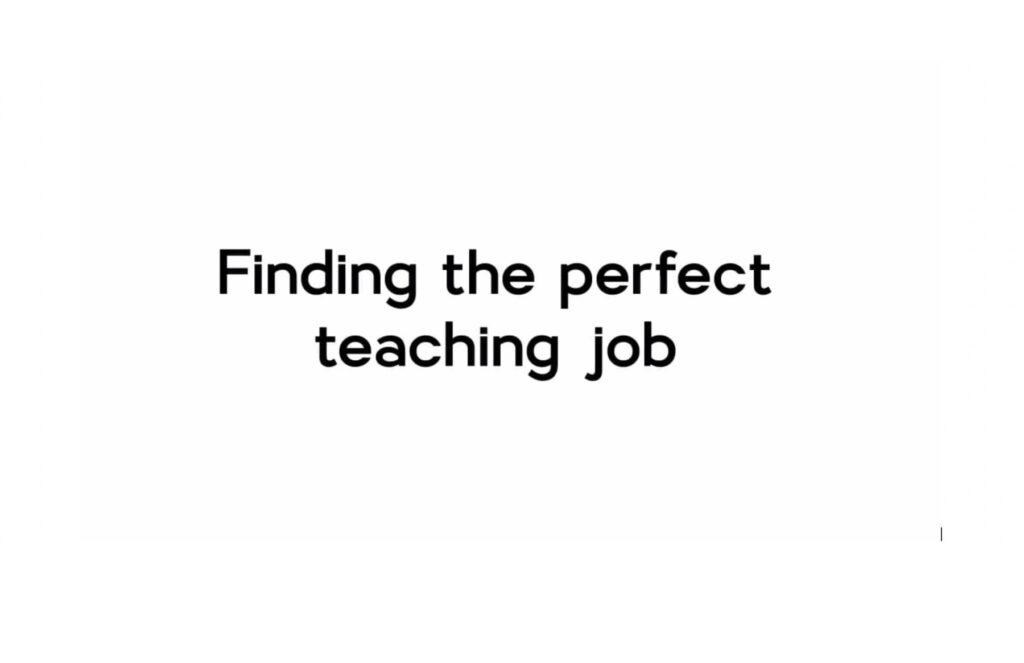
In a changing and uncertain world, most of us can agree that education is one of the single most important things in society today. Aside from imparting knowledge, it shapes who we are as people. Most of the top scientists I meet have something in common – they can all tell you the name of […]

In March 2019, the British Academy hosted a launch event for Language Analysis in Schools: Education and Research (LASER), at which a number of speakers presented their reflections on the importance of skills in language analysis for a range of subject areas currently taught in schools. Below are links to papers, co-published with Languages, Society and Policy (LSP), […]

As you watch the webinar, here are some supporting resources from the Chartered College to explore as you go: The Profession: the publication for early career teachers Relationship-building from day one: A simple technique to build rapport and recognise new students’ needs Video-enhanced observation: a new window on lesson feedback in a PGCE school placement […]

Following the Children and Families Act in 2014, access to resources within ‘Special Educational Needs and Disability’ (SEND) legislation in England is changing. Autism Spectrum Disorder (ASD), which requires a medical diagnosis, is the documented need on 28.8% of ‘Education, Health and Care Plans’ (EHCP) – the highest proportion of any ‘diagnosis’ (DfE, 2018). Specific […]

Let’s start with an easy observation: we all make mistakes and don’t like admitting to them. In fact, as a culture, Schulz (2011, p.7) believes ‘we haven’t even mastered the skill of saying I was wrong when we add, for example, a modifying but to the end, or express it passively as in mistakes were […]

We hosted a panel of educators, including an early career teacher, a primary headteacher and a previous assistant headteacher, to share advice and guidance for students searching for their first teaching position.

Many schools advocate the use of praise over punishments, but sanctions are also common for dealing with misbehaviour and typically part of schools’ behaviour policies. In this article, I explore some possible unintended consequences of punishments. ‘Never punish except in anger’ When dealing with misbehaviour and giving punishments, teachers are often told to keep calm […]

Guildford High School is an independent day school for girls aged four to 18. There are approximately 980 girls overall with almost 300 in the junior school. Although entry is dependent on selection, there is a broad range of attainment within each year group. The junior school participates in the assessment and reporting arrangements for […]

Where are we now? Having worked at the same school for almost two decades, I have witnessed many changes over the years. Seating plans, for example, have evolved from being mapped out in your head, to being scribbled down on a piece of paper, to finally being entered onto complex digital templates. What was once […]

I am a research scientist based at the University of East London, who receives funding from mainly government-funded research sources. The main focus of my research is on investigating the factors that cause stress in young children, and how this affects their concentration. When I was approached by the Assistant Headteacher of a local school, […]

It contains clear guidance from classroom practice and some surprising, often counterintuitive insights from psychology about how learning happens. What is it about? The book explores two main themes: Learning and Thinking (part 1), and Motivation and Behaviour (part 2). There is also a third part that explores some controversies. The book covers many topics […]

All 62 well-defined techniques are mutually reinforcing and form a coherent overall guide. What is it about? Teach Like A Champion is a set of ‘field notes’ that explain a range of techniques that cover a teacher’s core repertoire. There are four parts that form the underlying principles for Lemov’s approach: Part 1: Check for […]

Preparing young people for the future with lessons from the past. What is it about? In search of the ideal education for his daughter, the author Martin Robinson turns to three of the classical arts – grammar, dialectic and rhetoric (trivium). He then explores how a modern version of this could serve as a blueprint […]

Each type of assessment has different implications for our sense of achievement, progress and standards, and the validity and reliability of the data that we can capture. What is it about? Making Good Progress is an in depth exploration of the two main purposes of assessment: Formative assessment should give us information about how students […]

The hands-on style of the book is excellent for teachers looking for evidence-informed ideas to put into practice. What is it about? The Making Every Lesson Count framework is made up of six interacting principles, including: Challenge so that students have high expectations of what they can achieve Explanation so that students acquire new knowledge […]

Each task, each bit of knowledge, each experience should add up to more than the sum of the parts. What is it about? Myatt explores a number of important concepts in curriculum design through a series of short, punchy chapters. The concepts are organised to allow teachers and school leaders to clarify their thinking around […]

The authors suggest that teachers do not need to be researchers, but they should be ‘research-informed’. What is it about? The book is an exploration of how teachers can make sense of education research so they can both defend themselves against having unevidenced ‘guff’ imposed on them, and invest their energy in ‘good bets’ – […]

Each pupil has their own world and peer influences – they make sense of the information shared in class in different, unseen ways. What is it about? The Hidden Lives of Learners is a posthumous account of the findings made by Graham Nuthall and his research team. Over several decades, they studied how children learn […]

What it means, how it raises educational achievement, why it matters and how to do it in practice. What is it about? In the first part of the book, Wiliam makes a case for why educational achievement matters, why our best bet is to develop the teachers we already have and, finally, why improving teachers’ […]

Deep knowledge is always the goal, but everything we learn must connect to something we already know. What is it about? Why Don’t Students Like School? provides an overview of some key findings from cognitive science and their implications for teachers in classrooms. Chapters include ‘Why do students remember everything that’s on television and forget […]




















